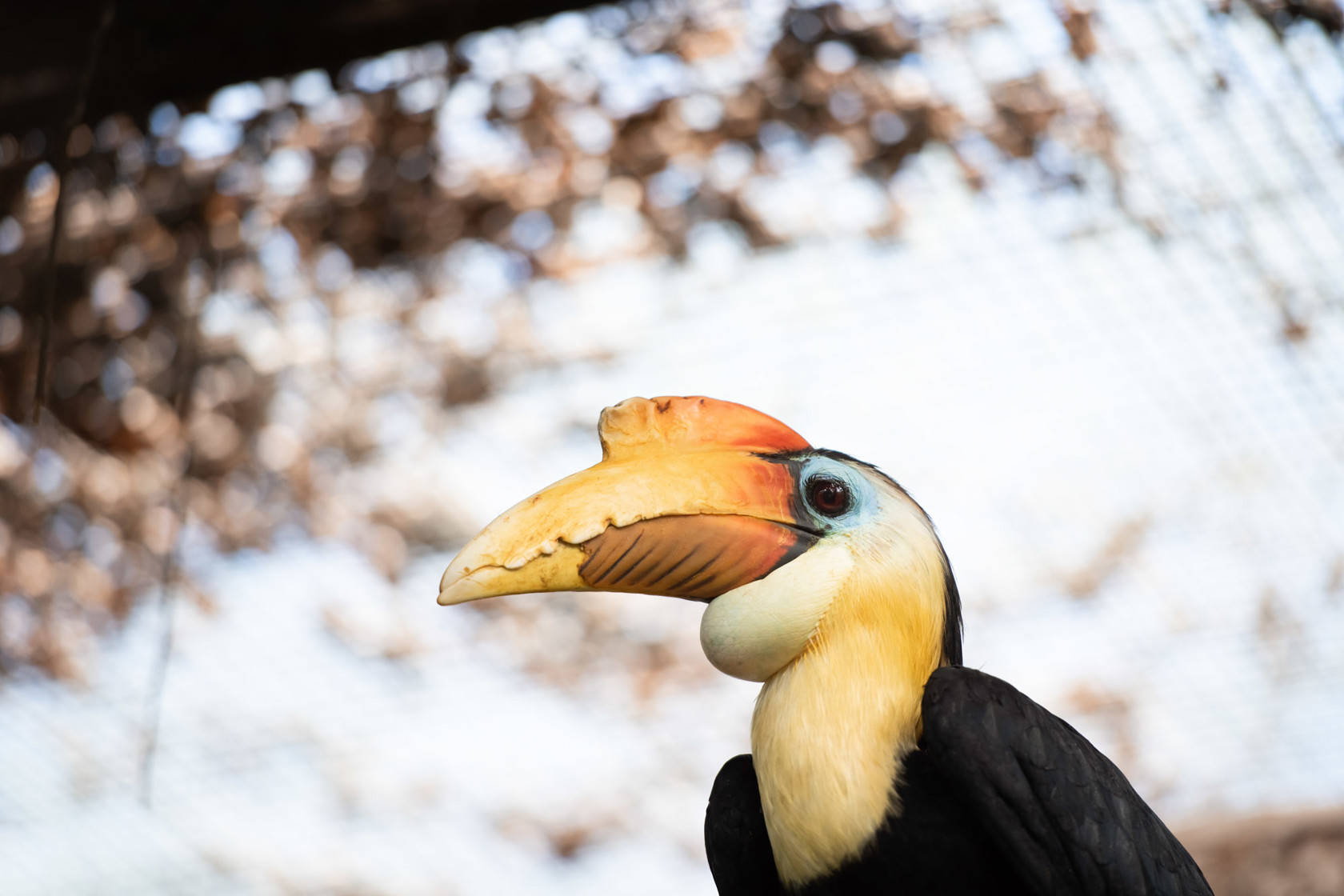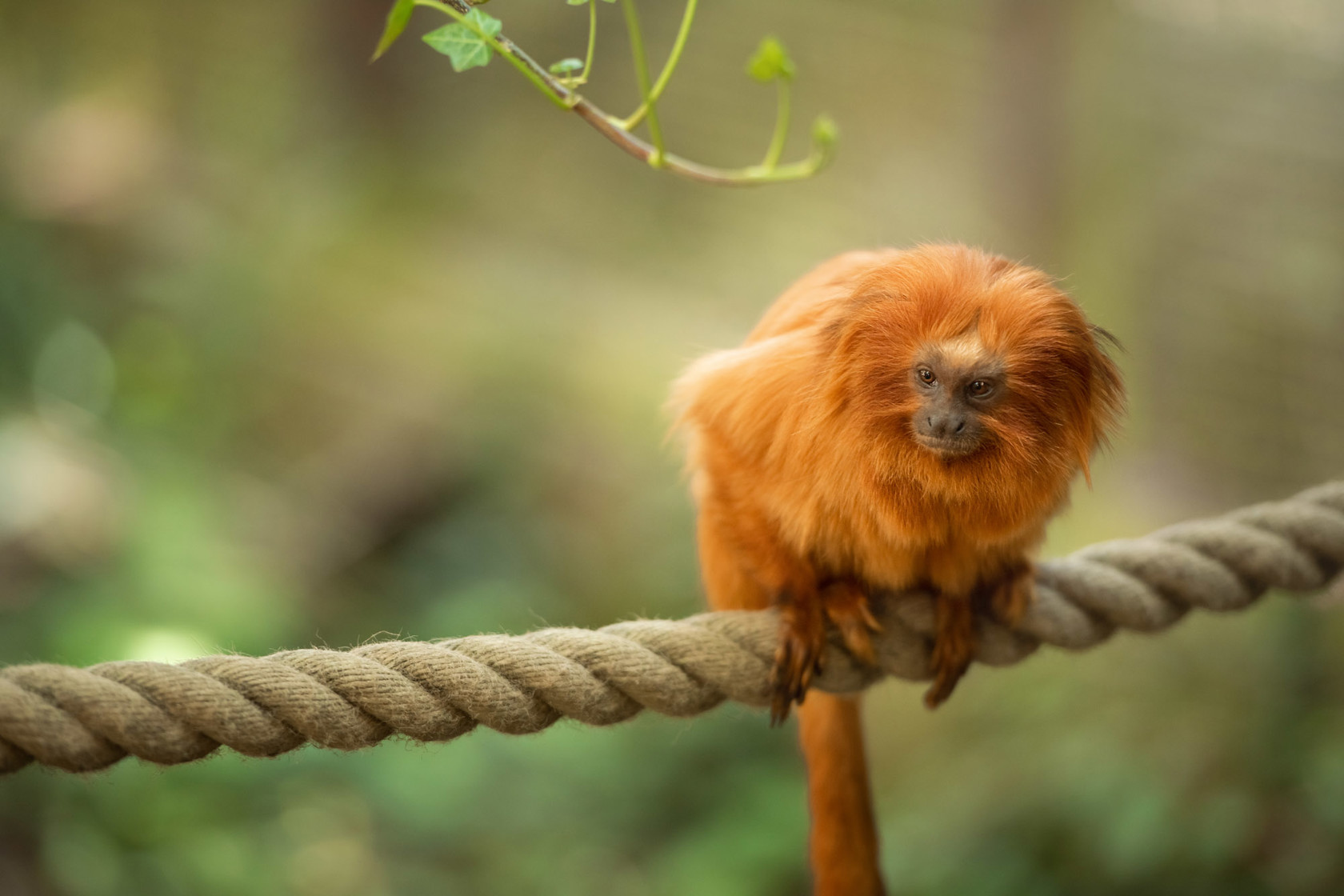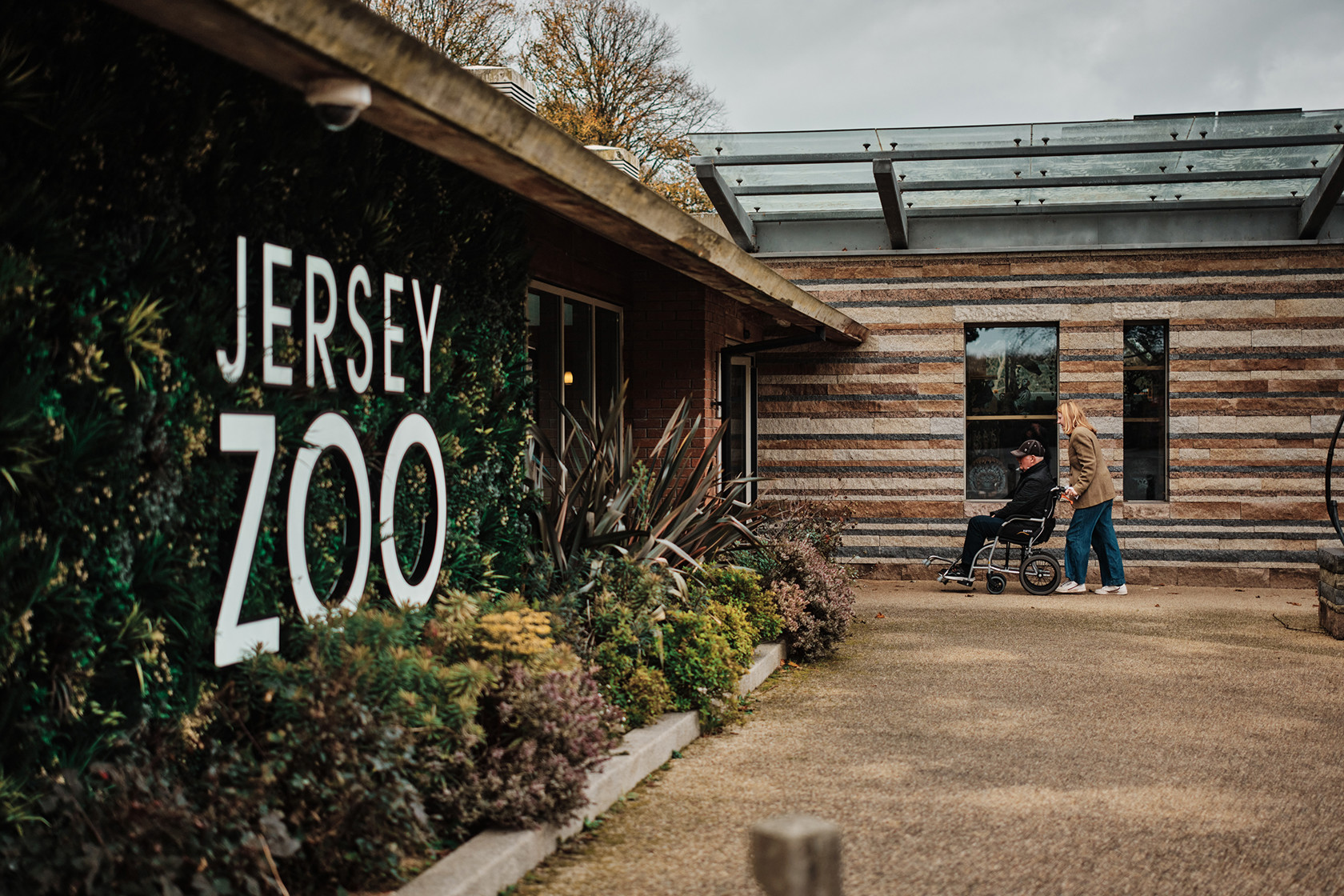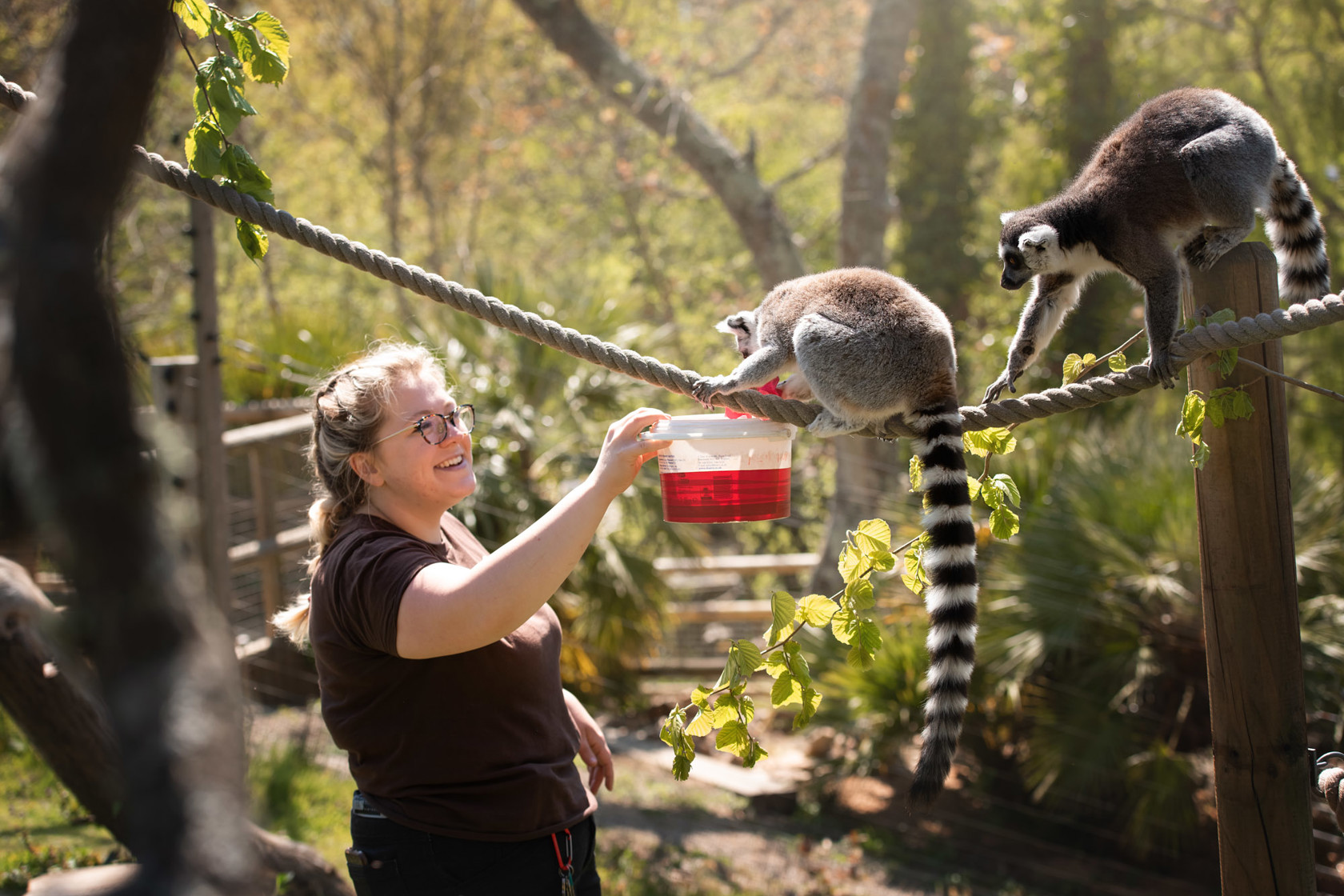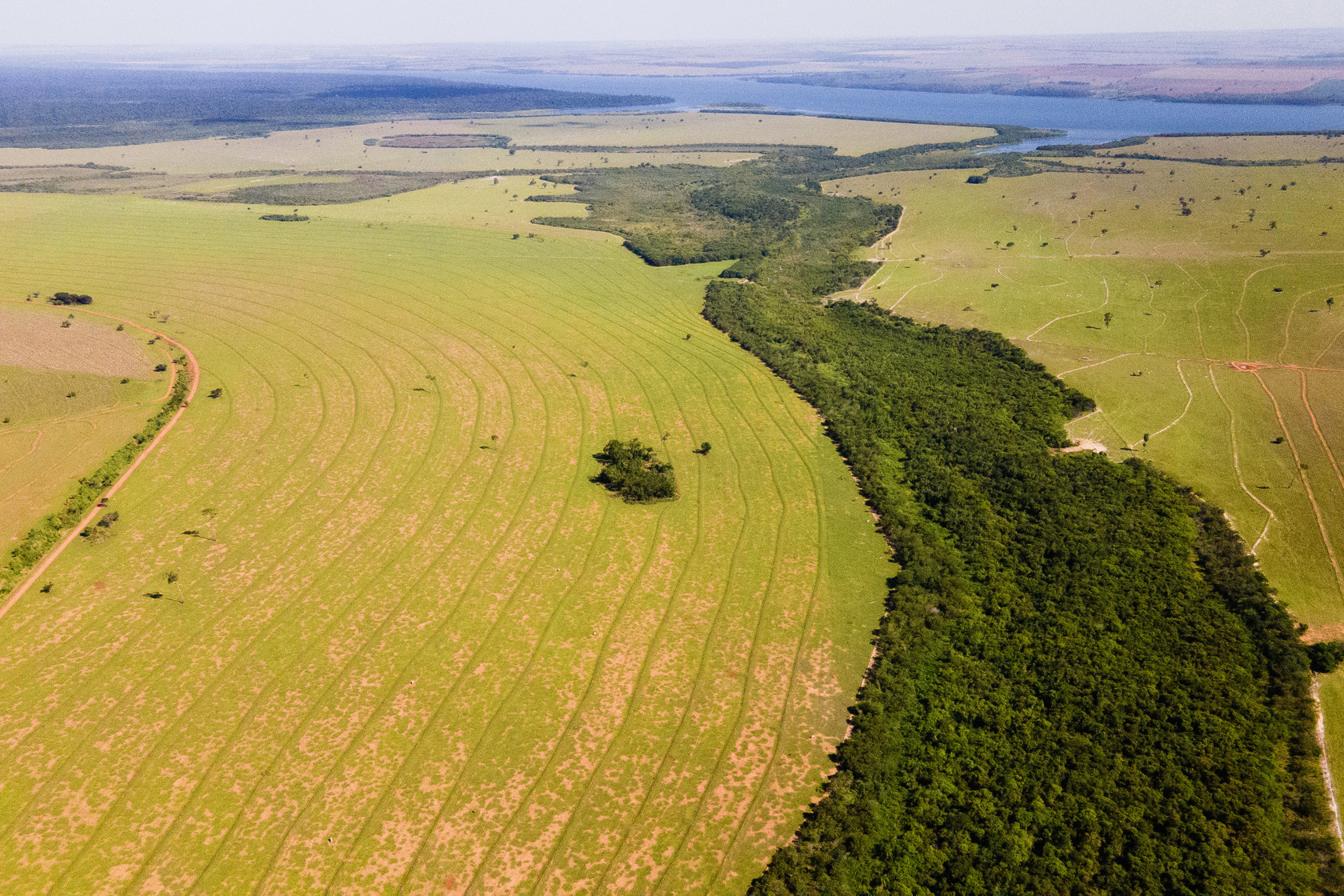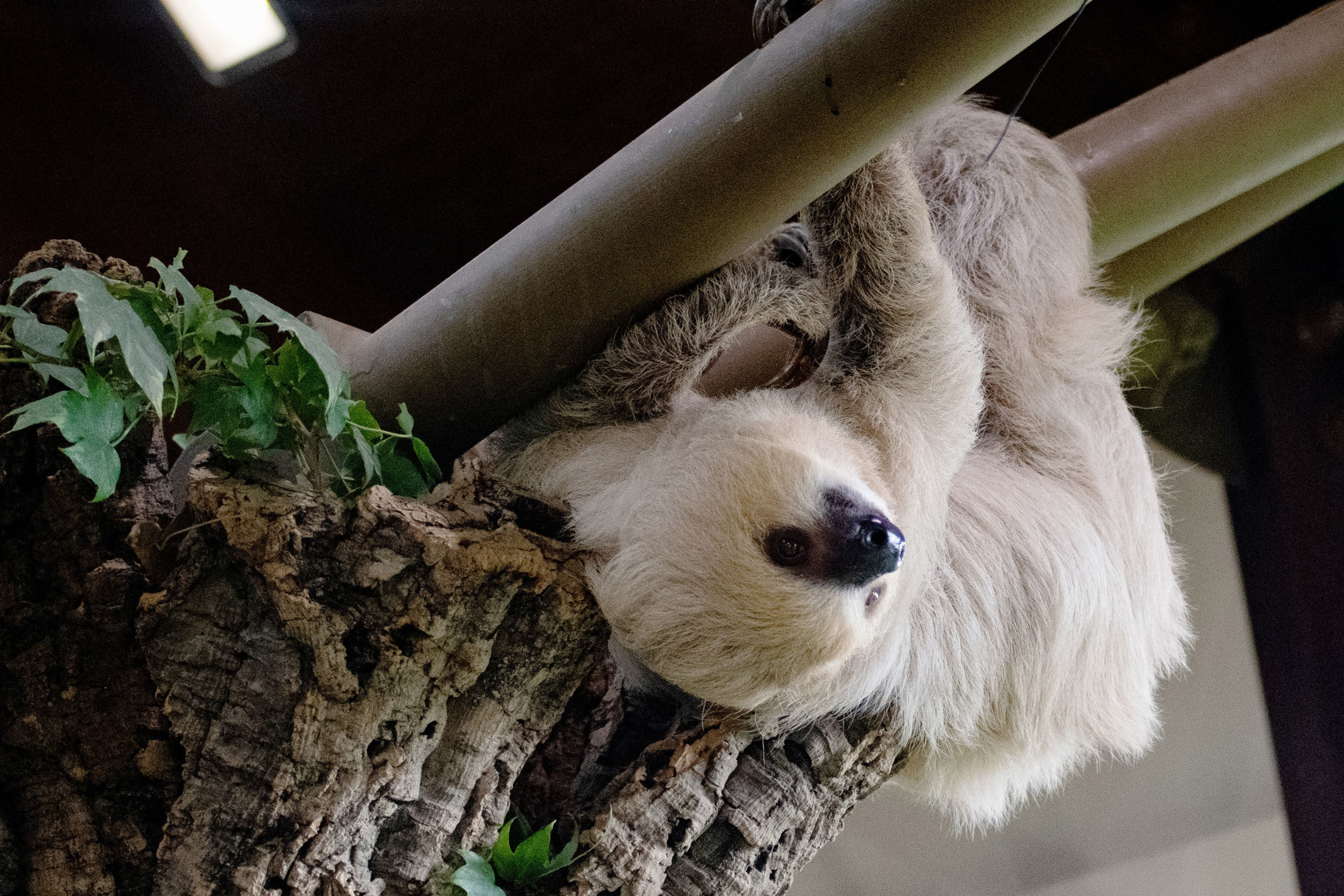An update on the Livingstone's fruit bats at Jersey Zoo
24 April 2025
In a carefully planned effort, the team at Jersey Zoo have relocated our Livingstone's fruit bats following the diagnosis of Pasteurellosis in the colony.
Bats, and many other animal species, naturally have Pasteurella bacteria in their microbiomes, but an infection can occur when there is a change in the balance and relationship between bacteria and the bat's immune system. Biosecurity measures were implemented on top of an already strict cleaning routine following the diagnosis of the first case, to ensure the continued safety of the bats and the staff who care for them.
The team acted quickly once the infection was identified, with all bats receiving antibiotics. Sadly, ten bats died from the infection. Separating the colony into smaller groups was crucial to preventing further spread amongst the bats. Following in-depth welfare and risk assessments, over 70 bats were relocated in one day and separated into four behind-the-scenes enclosures.
Early signs suggest the move has been positive, with the bats adapting to their temporary homes. All the bats have been effectively treated by our dedicated Veterinary team, who are working alongside our keepers to monitor the situation closely. Having cared for this Endangered species for more than 30 years, we are keen to understand the cause of the illness in as much detail as possible. We are collaborating on the production of a vaccine to try to protect our bat colony into the future.
“A huge amount of planning, preparation and time goes into any animal move, from international animal transports to internal enclosure transfers, so when you consider over 70 bats were moved successfully in one day, we must be so proud of the effort and cross departmental collaboration, especially under such challenging conditions,” said Ben Matthews, Curator of Mammals at Jersey Zoo. “We will continue to be guided by objective data to shape and refine not only the current management of fruit bats at the zoo, but how we look after the animals moving forward.”
Dr Allan Muir, Head of Veterinary Services, said, “The diagnosis and management of pasteurellosis in our colony of Endangered fruit bats has been a challenge for us in recent weeks. That said, the level of collaboration across the zoo under these difficult circumstances has been outstanding. Additionally, we are working closely with veterinary colleagues in the UK to understand the disease in as much detail as possible, and to develop a vaccine to protect our colony and the species into the future.”
Whilst we understand that visitors to the zoo have been disappointed not to see Livingstone's fruit bats, our commitment to the welfare of our animals is paramount. We’re using the opportunity of the Bat Tunnel being empty to carry out renovations to the now ageing structure to ensure it can keep going with providing modern standards for fruit bat care into the future.
Jersey Zoo has the largest proportion of the global captive population of the species. Over the last few years, we have been active in transferring bats to other zoos. So far, we have established two new colonies at zoos in France and the UK and support them with enclosure design and husbandry.
Found in the wild on the Anjouan and Mohéli islands of the Comoros in the Indian Ocean, Livingstone fruit bats face the threats of habitat deforestation and tropical storms, which seem to be increasing due to climate change. Such an uncertain future makes captive populations vital to saving the world's most threatened fruit bat from extinction. Colonies like the one at Jersey Zoo provide a safety net population should their wild counterparts face further population decline.

